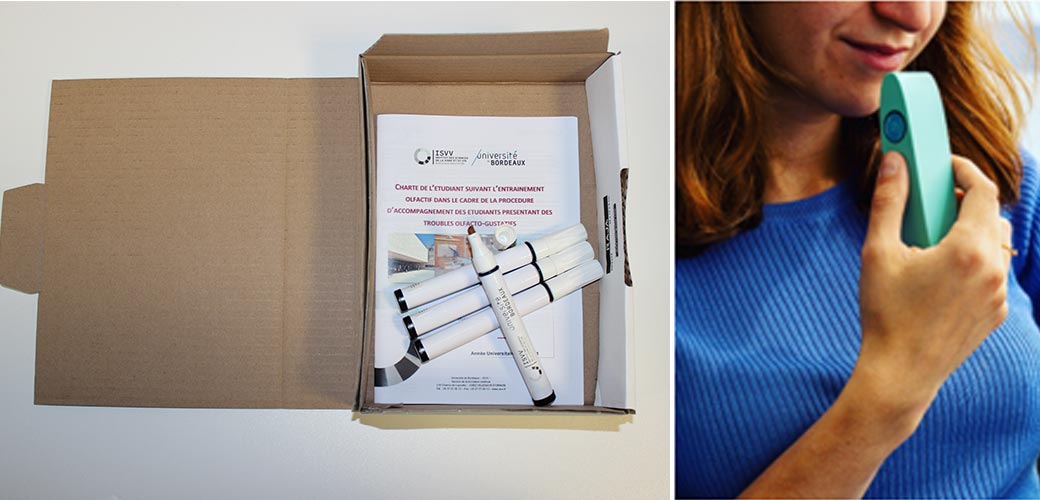What do you do if you lose your sense of smell, and your training or expertise relies on tasting? The Institut des Sciences de la Vigne et du Vin (Institute of Vine & Wine Science) is on the case.
The COVID-19 health crisis has highlighted the social and psychological issues encountered by people experiencing problems with their sense of smell or taste. We should note that this affects 5 to 15% of the general population even when there is no health crisis, and can have a variety of causes. The impact of this loss can affect both our personal and professional lives. Oenologists, sommeliers, chefs, perfumers, and flavorists, to name but a few, have their ability to do their job directly affected.
Since the crisis began, the sector has been working to try to help and support professionals affected by these issues. One example is the international survey launched by UFOE (the union of French oenologists) in the spring of 2020, seeking to gain a clear picture of the current state of these issues.
The Institut des Sciences de la Vigne et du Vin also began supporting its students (undergraduates, national oenology diploma students, master’s students, university diploma students etc.) by offering them a guidance and recovery protocol.
With the support of the University of Bordeaux and its medical services, the primary goal of the ISVV teaching staff was to ensure that students felt heard and to remove taboos relating to taste and smell problems for future industry professionals. Secondly, they are seeking to help students recover these senses that are so vital for their learning and trade more quickly and effectively.
The protocol guides students as to what approach and actions to take. For example, specific consultations such as those suggested by Dr Camille de Bonfils of the Maison de Santé Protestante de Bordeaux-Bagatelle enable a personalized diagnosis. This uses tried-and-tested smell and taste tests, an assessment of sensory perception and memory, and a clinical examination. This also teaches and reassures the student about their ability to recover.
Because yes, recovery is possible. The teaching staff have therefore created a training booklet for students to supplement classes and the information provided on the issue of sensory impairment. The aim of this booklet is to guide students and encourage them to spend a few minutes practicing each day, understanding that it is not always easy to stay positive if you do not see regular improvements to your olfactory acuity. This original document offers various exercises to limit feelings of frustration in people affected (see ‘Training support booklet for managing taste and smell disorders’).
The exercises suggested build on ISVV’s expertise in olfactory and gustatory learning, as well as scientific studies in a clinical setting and published by international research teams. Use of this booklet has been endorsed by the ENT doctor helping to set up aftercare for ISVV students. The exercises are based on repeated exposure to odorants, olfactory mental imagery (the ability to mentally imagine smells), and associative tasks (see ‘The four steps to take if you think you are having problems with your sense of smell’). It should be noted that these exercises can have physiological, neurophysiological, and cognitive effects that optimize potential recovery of olfactory acuity, but do not in any way guarantee a particular recovery time or success rate.
As well as this booklet, ISVV is providing all students undertaking this re-education process with an olfactory kit to aid their daily practice. This consists of various essential oils selected on the basis of specific scientific studies undertaken on these issues. The odorants selected change based on the student’s level of recovery. The kits created by ISVV take the form of olfactory pens (Sniffinsticks© - Burghart) or use the portable diffuser PtitSniff© (https://www.leptitsniff.paris/). These recognized smell tools allow odorants to be diffused in a controlled, safe way.


 Plan d'accès
Plan d'accès



